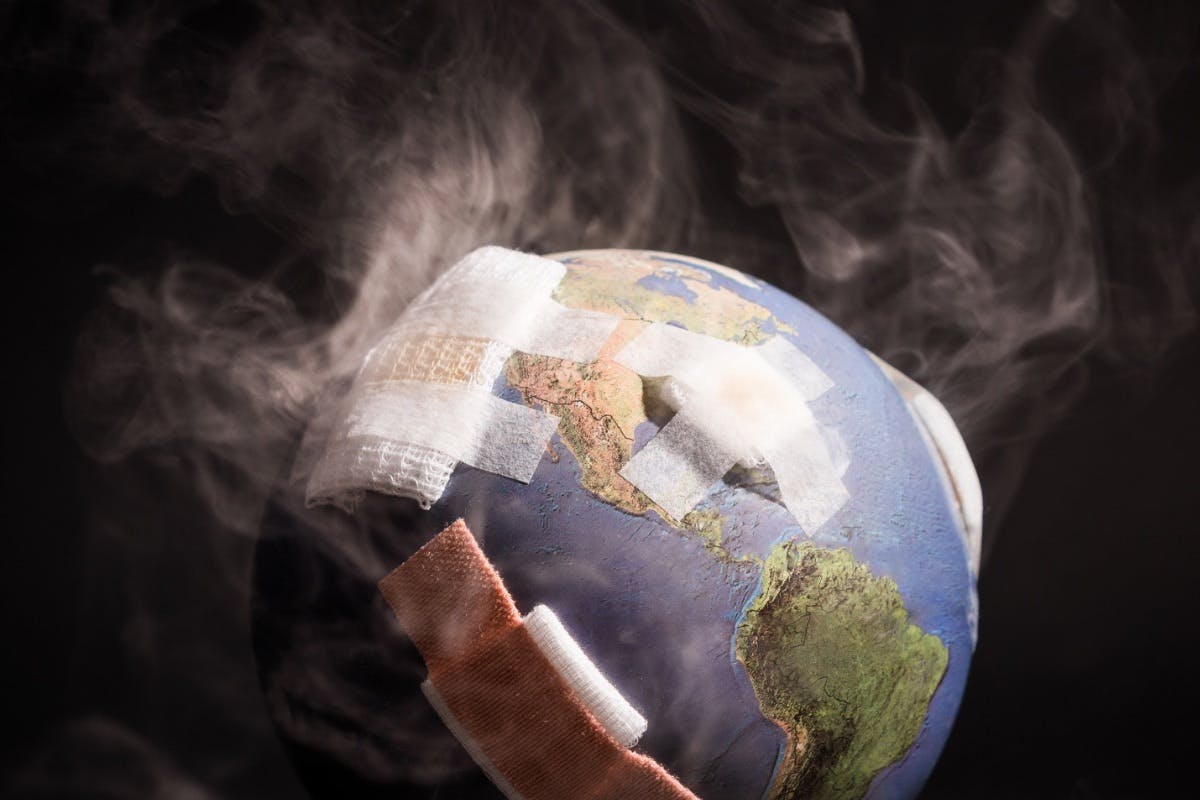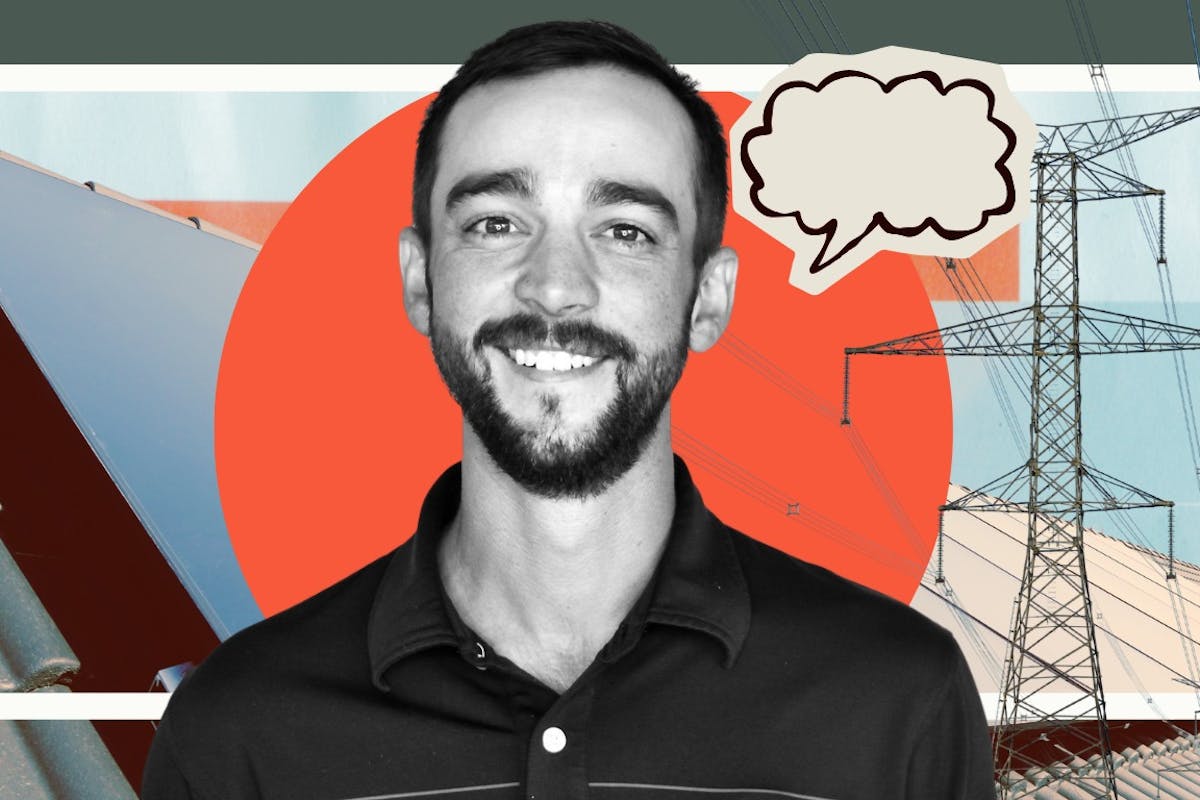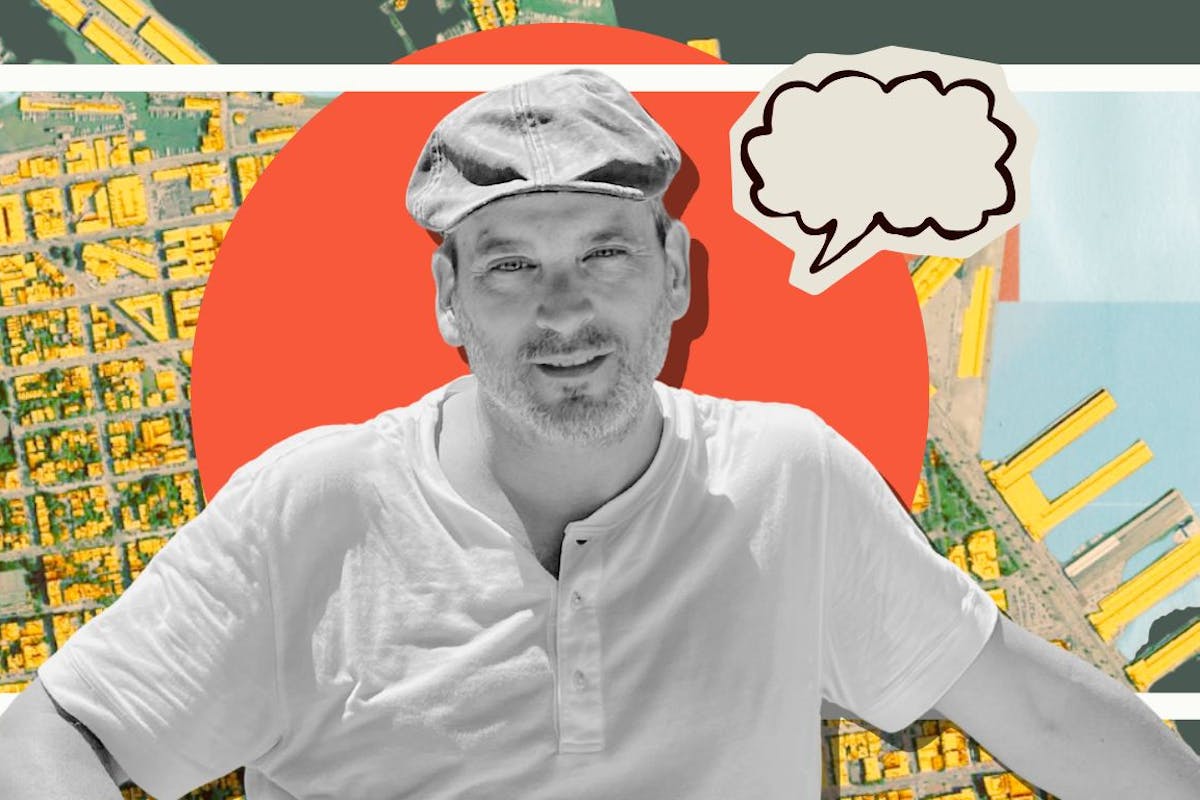Why Does Climate Change Matter?
Last edited
Author
Andrew Blok
Electrification and Solar Writer and Editor
Editor
Andrew Giermak
Solar and Electrification Writer and Editor

Climate change matters because it affects all life on Earth, from humans and animals to plants and the environment. It leads to extreme and unpredictable weather patterns that can be harmful to humans and ecosystems.
This article will explore why climate change matters and how it affects the planet, why it is an important issue, and how we can make a difference with simple adjustments like a shift towards renewable energy that helps mitigate climate change by reducing carbon emissions.
See how much you can save with home energy changes
What Is Climate Change?
Climate change is the significant variation of average weather conditions over several decades or more. While natural weather trends vary over the short term, climate change is more of a long-term phenomenon that includes impacts from human activities and natural causes such as ocean currents, volcanic eruptions, solar variations, and more.
While some people use global warming as a synonym for climate change, this is not entirely accurate. Global warming implies that climate change is about increasing temperatures, whereas some areas are actually getting cooler in the short term as a result of the changing climate.
Instead, climate change shows up in a multitude of ways and in different degrees all over the globe. Depending upon where you live, those destructive events include extreme heat, record floods, hurricanes, rising sea levels, wildfires, and raging storms. In short, climate change poses a danger to each one of us, and the ability of future generations to live on Earth.
For more in-depth information, read our “What is Climate Change?” article.

Why Is Climate Change an Important Issue?
The Earth has undergone many transformations in its billions of years of existence, but the current climate change trends are different, and much more rapid than the changes of the past. The current climate change is also different in that it's caused by the actions of humans (mainly burning fossil fuels).
The rapidity and severity of these changes raise questions about plants and animals ability to adapt to them. The effects — in more severe storms and droughts, and changing weather patterns — take a toll on humans as well. While climate change is already affecting the planet, we can still avoid the worst effects and adapt to the changes already here.
Mitigating climate change is a complex and nuanced issue involving the entire planet. The current targets set out by the Paris Agreement and the Intergovernmental Panel on Climate provide worthy goals — staying within a global average temperature of 1.5 degree Celsius (3 degrees Fahrenheit) of warming and achieving net-zero carbon dioxide CO2 emissions by 2050 — but the world is on track to miss them.
While the hard part is putting them into practice, luckily we know the solutions to the problem.
How to Address Climate Change
We know the cause of climate change — mostly fossil fuels — and we know the solutions. Here are some of the main ones.
Clean energy
Burning fossil fuels puts planet-warming greenhouse gases into the atmosphere. We still need energy to power the modern lives we lead and the global economies that power them, so we’ll need energy that doesn’t emit greenhouse gases.
Solar, wind, and geothermal energy are some of the biggest carbon-free energy sources employed today. They make up most of the new generation sources added to energy grids, both in the United States and abroad.
After decades of winding down, nuclear power is experiencing renewed interest as a potential source of massive reliable energy production.
Electrification
Electrification means replacing fossil fuels with electricity. While much electricity is still generated by fossil fuels, electrification is a key climate action because as the grid cleans, so do the electric machines that run off of it. A gas furnace will always burn gas. A heat pump that runs on electricity from gas today could run on electricity from solar panels tomorrow. Electric vehicles provide one avenue for electrification of transportation.
Land use
Trees, plants, and soil lock up a lot of carbon. But deforestation and other harmful land uses can release it into the atmosphere. Reforestation and sustainable land uses can capture atmospheric carbon and lock it away.
Other actions
Other things you can do to address climate change include shifting more of your diet to plant-based foods and other low-carbon options, opting for low carbon transportation like walking, cycling, and driving an EV, and voting for people who take climate change seriously.
While any one person likely has a small individual contribution to the problem, they also have opportunities to contribute to the solution.

What Are the Biggest Ways Climate Change Affects the Planet?
While climate change affects us all, the economically disadvantaged who have contributed the least to climate change often bear the greatest brunt of its effects.
Increase in extreme weather events
Climate change is the primary culprit behind the increase in extreme weather events we are currently experiencing. It has made some regions warmer and others wetter or drier than they used to be.
These changes in the weather patterns have significant effects on our daily lives, including:
- Where we live
- How we eat
- How we travel
- How we work
Food insecurity
Climate change leads to extreme floods and droughts that regularly destroy farms and crops worldwide, with consequences that impact all farmers across the US and around the globe. For example, 1 in 4 people in Africa’s Lake Chad Basin lack enough food because of increasing droughts in a region that is warming at 1.5 times the global rate.
Reduced food supplies and increased food prices affect everyone, but hurt poor people the most. The most significant impacts of global warming on food supply are projected to happen in areas already struggling with food and nutrition issues.
See how much you can save with home energy changes
Effects on human health
Heat waves, cold snaps, and other extreme weather affect people who cannot protect themselves from the elements.
Extreme heat, floods, and the spread of disease-bearing insects, all of which are made worse by global warming, have also led to more diseases worldwide. According to the World Health Organization, climate change will cause about 250,000 additional deaths per year from heat stress, malaria, malnutrition, and diarrhea between 2030 and 2050.
Negative impact on ecosystems
Extreme heat has negatively impacted ecosystems all over the globe, with native animals and plants bearing the greatest brunt. The United Nations says that over 1 million species are at risk of becoming extinct across the globe.
Scientists contend that a 4°F increase could mean more extreme heat waves and Arctic ice-free summers that increase ten-fold. This could lead to the destruction of the world's coral reefs, which are the natural habitat of millions of species.
Deserts are growing in size and becoming even dryer. Forests are also degrading, with rainfall decreasing and wildfires increasing. Ice sheets are shrinking at the north and south poles, with Greenland losing 530 billion tons of ice between 2018 and 2019. Antarctica has lost almost 4 trillion tons of ice since the mid-90s.

The ocean is warming
Ocean temperatures have also increased and hotter temperatures pose a threat to marine ecosystems. Half of the world's coral reefs have died in the last 30 years, taking with them the diverse marine life that calls the reef home. Scientists project that up to 90% of coral reefs could die in the next 20 years.
Ocean levels have also risen 8 inches in the last 100 years due to the warming of ocean temperatures and melting ice sheets over that time period. The Pacific Islands are under continual threat, and some are projected to become uninhabitable in the future. In the US, global warming has made Miami one of the most vulnerable coastal cities in the world.
Why Climate Change Matters
Climate change represents a significant concern for people around the world. Greenhouse gas concentrations continue to rise.
The good news is we know what causes climate change and how to address the problem.
As individuals, we have a role in solving this predicament. We must come together to fight the rapid growth of climate change and secure the future for the coming generations. We can achieve this by using clean energy sources like solar energy, and reducing the emission of greenhouse gases in the atmosphere to pre-industrial levels. We can do our part by adopting practices to reduce our carbon footprint in our daily lives.
At Palmetto, we take climate change seriously. Our Mission is to lead the world towards a clean energy future, and stop climate change before we reach an irreversible tipping point. This requires large shifts by entire nations and entire populations, with urgency on a massive scale. But technological advancements have put it within reach.
If you're interested in adopting solar, to lower both your carbon footprint and your energy bill, get started with our solar savings calculator.
See what home electrification can do for you:
Frequently Asked Questions
What are the effects of climate change?
Among other things, climate change causes rising average global temperatures, rising sea levels, and more severe weather, including heat, drought, and storms. These have negative effects on the health of humans, plants, animals, and whole ecosystems.
What causes climate change?
Climate change is mostly caused by the burning of fossil fuels for energy. Land use and other factors play a role, too.
How does climate change impact daily life?
Climate change has a wide range of effects, from the disruptive to the deadly. Severe weather and extreme heat are more disruptive and dangerous than ever. Heavier precipitation can cause dangerous floods. Warmer springs are extending the allergy season. Warmer winters threaten beloved activities like skiing and ice fishing, while leaving more disease-bearing insects alive and allowing them to spread to new territories.


